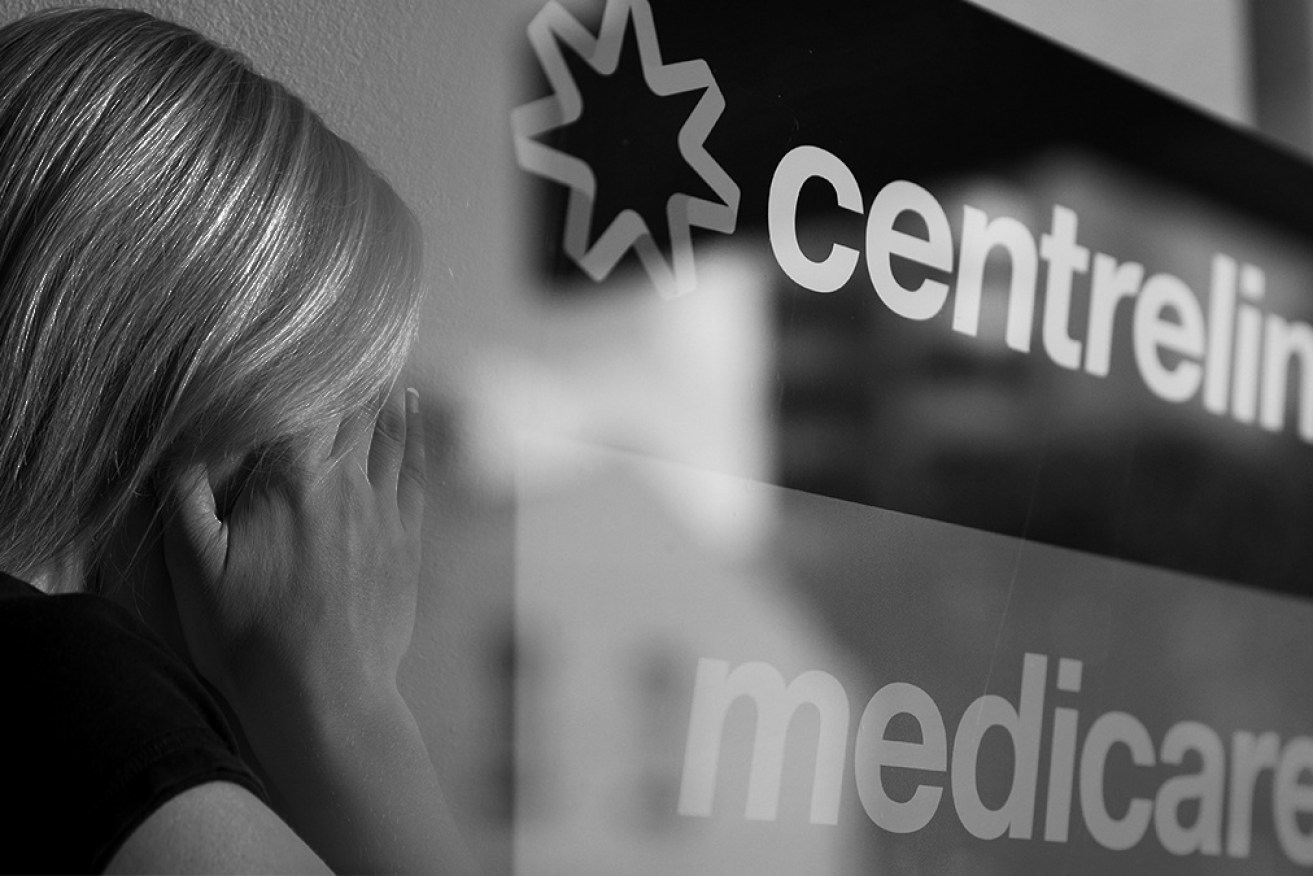‘They don’t see you as human’: Centrelink failing domestic violence survivors


Centrelink's processes for identifying relationships can't spot domestic violence. Photo: AAP
Centrelink is using evidence of domestic violence as proof that women are in legitimate relationships, linking their access to vital support to their abusers’ wealth.
A report by Australia’s National Research Organisation for Women’s Safety (ANROWS) has found Centrelink struggles to distinguish between genuine relationships and cases of abuse, and uses inappropriate information (including police and hospital records) to determine whether or not survivors are part of a couple.
Under legislation, people in couples are assessed on not only their income and assets, but those of their partner too.
This means many women trying to leave abusive relationships are being denied payments at a time when the risk of violence and potential death typically escalates.
Griffith University research fellow Dr Lyndal Sleep, who led the ANROWS report, told The New Daily the ‘couples rule’ is a “nexus point of difficulty” for women trying to leave their abusers.
The information being used to inform Centrelink’s decision was equally problematic.
“Many women rely on social welfare payments to become independent after leaving a violent relationship,” she said.
“It’s power and control – that’s what’s at the essence of violent relationships. When you put access to social security and a basic income into the mix, it basically means the perpetrator just has increased control, and can basically entrap them.”
Dr Sleep called for the Social Security Act 1991 to be amended to explicitly include domestic violence as a consideration when determining whether or not to apply the couples rule.
‘They believe everyone is a liar’
When Kim* tried to leave her abuser in 2014 after a five-year relationship, she faced intense scrutiny and disbelief from Centrelink.
“I was taken aback by the form I had to fill out. It was such an invasive form. They operate under the belief that everyone is a liar and can’t be trusted,” she told The New Daily.
“I remember filling out the form that they wanted to use to ascertain the status of the relationship, and I vaguely recall a follow-up phone call about the form where they questioned stuff about whether or not I was sleeping in the same bed as him, whether there was a sexual relationship, if I was washing his clothes or cooking his dinner.
“That’s how detailed it was. It couldn’t just be me telling them I’d ended the relationship. That’s not good enough for them. They wanted evidence.”
At the time, Kim’s abuser had control of her finances and wouldn’t allow her to have her own bank account.
The money she made working casually as a midwife one or two days a fortnight was instead placed in a ‘shared’ account to which she had access.
Eventually Centrelink agreed to provide her with a parent’s payment after she informed them she was the primary carer to her four children.
But after learning of the payments, her abuser challenged Centrelink’s decision and claimed to provide 50 per cent of the children’s care.
“I pointed out to them that he leaves the house at 6.45am on a weekday and, depending on the day, won’t be home till any time between 5pm and 9pm – how can he claim to be caring 50 per cent for the kids when he’s not even home most of the time?” she said.
“That didn’t matter. They just went down the middle and I ended up with a debt.
“They don’t see you as human. They don’t listen.”
That $2000 debt to Centrelink, along with the legal costs and inability to work due to ongoing post-relationship abuse has left Kim in a state of financial insecurity she doesn’t expect to recover from.
“I’ve been financially destroyed, because the systems related to the family law area allow men to use the legal system to abuse.”
For Kim, though, the headaches were ultimately worth it.
“Even though the systems have failed me and certainly thrown up a lot of challenges, I don’t regret it at all,” Kim said.
“Once you’re in a relationship that’s so full of disrespect that you’re being controlled and abused, it doesn’t get better of its own accord.”
Centrelink ‘striving to improve’
Hank Jongen, general manager of the Department of Human Services (the department responsible for Centrelink), said several initiatives have been implemented to better meet the needs of domestic violence survivors.
“The department is always striving to improve the support and information we provide to our most vulnerable people,” he said.
“This includes ensuring those affected by family and domestic violence are treated sensitively and have information about their options, so they can make informed decisions.”
Mr Jongen said the department is “always ready” to collaborate with organisations targeted at ending domestic violence, including ANROWS, and noted that even the latest report that the frequency of AAT (Administrative Appeals Tribunal) cases lessened after 2014 – which “strongly correlates” with the introduction of strengthened staff training and an increased focus on domestic violence issues.
*Kim’s name has been changed to protect her identity.
1800 RESPECT (1800 737 732)
Lifeline 13 11 14








